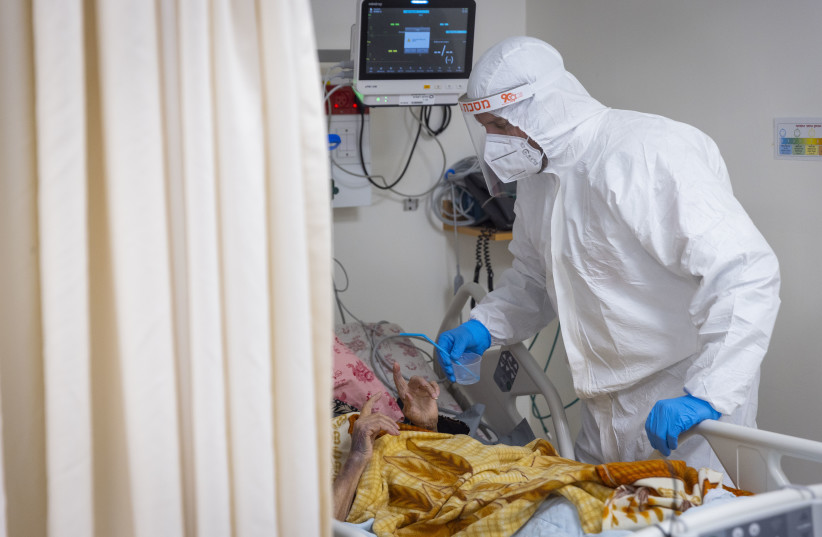Researchers at UCLA recently discovered that an abnormally suppressed immune system may be to blame for long COVID symptoms. Their study was published online on April 22 in the Clinical Infectious Diseases journal.
COVID-19 is caused by the body's hyperactive immune response to the SARS-CoV-2 virus. Those who contract the virus can suffer damage to the lungs and other organs. Some people who recover from the illness maintain some of the symptoms - this is called long COVID.
The longest known COVID-19 infection was identified in the United Kingdom and lasted for 505 days. Researchers in the UK found that the average long COVID infection lasted for approximately 73 days.
Initially, scientists thought that long COVID was caused primarily by persistent immune hyperactivity. Researchers at UCLA, working with this theory, hypothesized that blocking the immune receptor CCR5 — which is involved in inflammation — would reduce the activity of the immune system and relieve long COVID symptoms.
“But we found just the opposite,” senior researcher Dr. Otto Yang said. “Patients who improved were those who started with low CCR5 on their T cells, suggesting their immune system was less active than normal, and levels of CCR5 actually increased in people who improved."

According to the New York Times, a growing number of studies show that getting a COVID vaccine can reduce the probability of one's infection developing into long COVID.
A non-peer-reviewed US study by health care data firm Arcadia found that those who had received even one dose of the COVID vaccine and subsequently became infected were 10-15% less likely to report symptoms of long COVID, according to the Times.
And, a January study at Bar Ilan University (also not yet peer-reviewed) also suggested that, in addition to protecting against the harsher COVID symptoms, vaccination may also protect against long COVID.
The UCLA study focused on the effect of monoclonal antibody Leronlimab on long COVID-19 and was funded by the antibody's maker CytoDyn Inc. It was also conducted by researchers employed by or consulting for the company.
“While this was a small pilot study, it does suggest that some people with long COVID may actually have underactive immune systems after recovering from COVID-19," Dr. Yang continued, "which means that boosting immunity in those individuals could be a treatment.”
This aligns with what we already see in existing studies that draw a correlation between vaccination status and long COVID. The research, however, is far from conclusive. An analysis conducted in the UK of electronic medical records from the United States found that there was no meaningful difference between the vaccinated and the unvaccinated in terms of their risk for contracting long COVID.
Although some feel like the COVID-19 pandemic has been going on forever, it has been just over two years. Medical research has been slow. And the research on long COVID is further complicated by the fact that not all researchers define long COVID exactly the same way.
They also do not all measure symptoms the same way or track patients for the same amount of time. Studies relying on patients' own feedback may result differently than those based on electronic medical records or data collected by the researchers themselves through medical examinations. Finally, the diversity of each study varied in terms of age, sex and race.
The preliminary findings of the UCLA study, according to the researchers, “suggests a complex role for [the CCR5 immune receptor] in balancing inflammatory and anti-inflammatory effects, e.g. through T regulatory cells,” although the results need to be confirmed in a larger, more definitive study.
